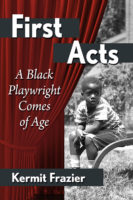From Our Soundbooth | August 09, 2010
This Overrated Post
This weekend on The Huffington Post, writer and critic Anis Shivani posted a piece called “The 15 Most Overrated Contemporary Writers.” Some of the authors declared overrated are Amy Tan, Michael Cunningham, William T. Vollman, and Antonya Nelson. Why have these authors been inappropriately “rated”? According to Shivani, it’s because of the lack of good criticism, the proliferation of MFA programs, and prose that is politically irrelvant. Shivani writes:
“If we don’t understand bad writing, we can’t understand good writing. Bad writing is characterized by obfuscation, showboating, narcissism, lack of a moral core, and style over substance. Good writing is exactly the opposite. Bad writing draws attention to the writer himself. These writers have betrayed the legacy of modernism, not to mention postmodernism.”
Well, okay.
Shivani’s post has received quite a bit of attention: there are over 1100 comments on his article, and a quick trip around the literary blogosphere will have all sorts of response about what one commenter called a “drive by shooting of criticism.” From reading other criticism by Shivani – he’s a frequent contributor to the Huffington Post and the literary journal Boulevard – he has always struck me as a smart, well-read critic. Which is why his post is so disappointing.
The goal of good criticism is, in part, to show you something you haven’t seen before. Agreeing or disagreeing isn’t the point at all. Whether or not I agree with Shivani isn’t relevant if he can get me, or any other reader, to experience the reading of these books in a different and interesting way. Here are just a couple of his passages that were interesting and worth more exploration:
On John Ashberry: “Mixes low and high levels of language, low and high culture, every available postmodern artifact and text, from media jargon to comic books, to recreate a reality ordered only by language itself. When reality=language (as his carping cousins, the language poets, have it, just like him), politics becomes vacuous, and any usurper can and will step in.”
On Antonya Nelson: “She can stuff in two or three similes in a single sentence she won’t do with only one. Has engineered a peculiarly depthless style, evoking sitcom scripts, where narrative moves by accumulation of insults and incomprehension.”
On Junot Diaz: “Replaces plot in stories and novel with pumped-up “voice.”
Whether or not Shivani is correct, none of the ideas gets any additional thought or consideration (wouldn’t, say, an example or two of the writer’s work be really helpful here?); further, they are often surrounded by a foaming rage at how connected these people are to the world of publishing. With it’s bullet-point sentence style and unexplored ideas, it’s difficult to read his post as anything other than the sour grapes of a writer with a bully pulpit and a microphone on the outside of the publishing world. The ideas are always suggested – again, Shivani isn’t dumb – but there isn’t any exploration of them in a way that might be the type of thoughtful criticism that he claims doesn’t exist anymore.
The construction of the column itself is an excellent example of exactly what Shivani complains is wrong with modern literature. Is there any easier column to write (or conversation to have) than overrated/underrated? Sportswriters have been using those for years, and at least have statistics to back them up. Overrated compared to what, exactly? It’s the type of word that stops thought, like any cliche, and strips away meaning. The title is inflammatory and the column is a rabid attack, which is what it is supposed to be. Check out the way the post is designed: pictures of all the authors, with a box to the side so you the reader can vote on the author’s “true” rating, all in a slideshow that we must click-thru to generate revenue and load new ads (see those on the side of the author photos?) for The Huff. Everything about Shivani’s post – the title, the writing style, its “criticism,” the construct of the text – is designed to kill thought and generate clicks.
Too often that’s what writers are doing now: saying things very loudly and with tremendous emotion, like a talking head on the news, with only one or two talking points to generate all the noise. That’s not what we need from our books, our authors, or its critics. What we need is Shivani to explore those ideas that are only touched upon in his post – and there are compelling thoughts that could be fascinating – rather than savage famous writers with the kind of personal attacks that are far too common nowadays.
Michael Nye is the managing editor of The Missouri Review.
SEE THE ISSUE
SUGGESTED CONTENT

From Our Authors
Feb 16 2023
An Interview With Mikka Jacobsen
In the interview that follows, Mikka Jacobsen talks with TMR interns Annalisa Geger and Kaitlyn Jensen about her essay “Kurt Vonnegut Lives on Tinder.” In the essay, Jacobsen describes her… read more

From Our Authors
Jul 18 2022
An Interview with Kermit Frazier
In the following interview, TMR intern Jed Graham talks with Kermit Frazier about his essay “Snow.” In that essay, Frazier delves into his childhood years spent in the Washington, DC,… read more

From Our Soundbooth
Apr 08 2022
Miller Aud-cast Episode 58: Vered Hankin
Hello and welcome to Miller Aud-cast, the Missouri Review podcast where we listen to and discuss the finalists for the 2021 Miller Audio Prize. Thank you for being here, wherever… read more

